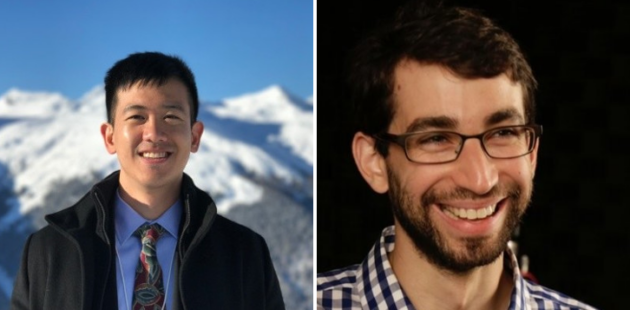 Modern Electron co-founders CEO Tony Pan (left) and Chief Technology Officer Max Mankin. (LinkedIn Photos)
Modern Electron co-founders CEO Tony Pan (left) and Chief Technology Officer Max Mankin. (LinkedIn Photos)
New funding: Modern Electron, a spinoff from Intellectual Ventures, is raising cash. A new filing with the U.S. Securities and Exchange Commission reveals a $30 million round. Officials with the company declined to comment on the filing.
According to PitchBook, the Bothell, Wash.-based startup had previously raised an estimated $40 million, including a round last year with backing from Microsoft co-founder Bill Gates, Metaplanet Holdings, and others.
The history: Modern Electron started in 2015 at Intellectual Ventures, the Bellevue, Wash.-based innovation hub created by former Microsoft researcher Nathan Myhrvold that is also backed by Gates.
Other notable companies originating from Intellectual Ventures include the high-tech antennae venture Kymeta and Gates’ own TerraPower nuclear power company.
The take: Modern Electron has developed a heat-to-electricity converter that can generate power from sources including natural gas, biogas and green hydrogen. Its devices are paired with home furnaces and hot water tanks, capturing the appliances’ wasted heat and turning it into electricity.
“Electricity is more valuable than heat. The irony is that there is plenty of energy in the furnace. But it is wasted,” CEO Tony Pan explained in an October article in Forbes.
Many Industrial sources are already using combined heat and power or “cogeneration” systems. The strategy is getting renewed attention as the world tries to cut carbon emissions everywhere possible.
Leadership: Pan is the co-founder and CEO of Modern Electron. He is a term member with the Council on Foreign Relations think tank, and a past member of the Global Futures Council in energy and entrepreneurship with the World Economic Forum.
Max Mankin is the startup’s co-founder and chief technology officer.
Pan and Mankin both held entrepreneur-in-residence positions at Intellectual Ventures’ Invention Science Fund, and were National Science Foundation fellows at Harvard University. Both also earned Harvard PhDs, Pan in physics and Mankin in chemistry.






